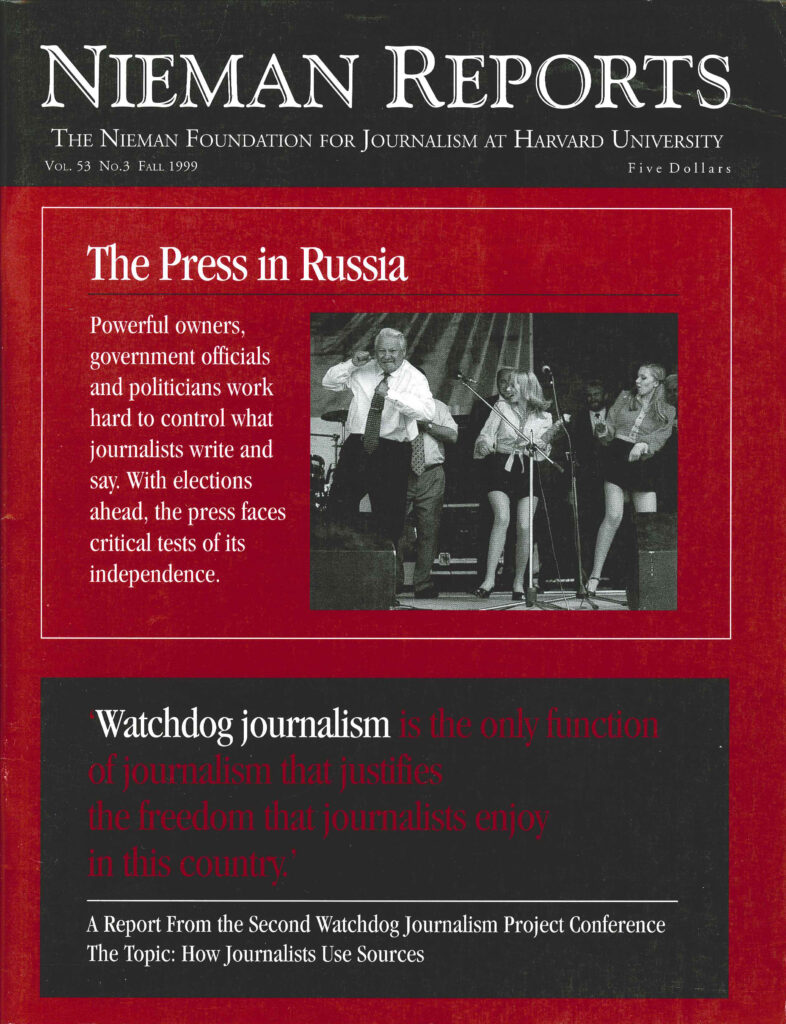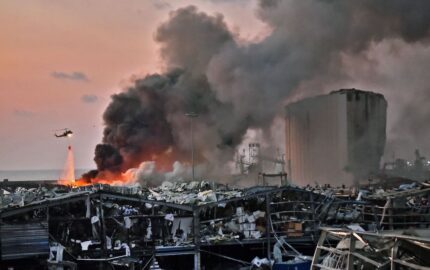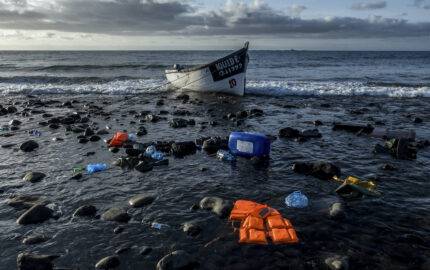Reporters often mentioned the roles editors played in how they reported the story or how the story appeared in the paper. At times their input was helpful; other times it wasn’t.
Loretta Tofani: “[When I began writing my story] it wasn’t coming together. I felt like something was missing. My editors meanwhile were really pressing me to get the story in the paper. Months were passing. They had a different idea for what the story should say. They wanted me to write about jail rapes nationally, with Prince George’s as part of the problem. To me, Prince George’s was the universe through which we saw everything. So there was a basic difference.”
[Tofani sought out another reporter to talk to about these difficulties.] “I told him everything I had collected, and he was very quiet the whole time. He just listened. At the end of the day, he said, ‘You have to talk to the rapists.’ I found this astonishing at the time. ‘Talk to the rapists! They’re going to admit their crimes? These crimes that they weren’t charged with? Why would they admit their jail rapes to me?’ “He said, ‘Oh, they’ll say something. They’ll say they were beaten. Otherwise, people might think the victims are lying.’”
...
[After six weeks of initial reporting on the story, Tofani wrote a memo to her editors mapping out the major points that would later appear in the series.] “I developed the memo and brought it one morning to the Assistant Maryland Editor, who I hadn’t had a great track record with. This was an editor who was mostly interested in suburban zoning disputes and seemed to me to lack guts and passion. But I just hoped for the best, and I made my best case. I told him it was really important, and he just wasn’t interested. He said, ‘Let’s put it on the back burner.’ I protested, ‘Look, what else is so important? This is what we’re here for.’ He said, ‘No, let’s put it on the back burner.’
“I couldn’t accept that, and I think this is also part of the [reporting] equation: In the newsroom there are obstacles, too, it’s not just sources. There are times when it’s necessary to find the next editor. And it’s uncomfortable because you have to work with the lower editor, but sometimes there are times when you need to do that…so I went to the Metropolitan Editor, who was Bob Woodward, and made my case again, and he said ‘yes,’ of course. And he told the Assistant Maryland Editor to give me some time to do the story, not full time, but he had to spring me sometimes from the daily coverage when I asked.
“Woodward then wrote me a memo. I still have it. He said, ‘The judges can really blow the lid off jail rapes.’ …but this wasn’t really what I had in mind. I wanted a story that of course quoted the officials but also had the human texture to it, the human dimension of what was going to be the effect of the jail rapes. How were these policies really affecting human beings? I really imagined a lot of interviews with the victims.”
...
“Looking back, I sometimes think it was a miracle that the story was published, both because of problems with sources and problems also in the newsroom, because the editors simply weren’t interested. So I think any sense that we have of reporters having to maintain some independence in terms of their sources, they also need to maintain independence in the newsroom to get the job done…. It’s all about maintaining independence both outside the newsroom and also inside…. The series also could have been derailed many times by well-meaning editors whose instincts or values or sensibilities were somewhat different than mine…the key to overcoming such problems is to maintain one’s independence mainly by developing more sources and more friends in the newsroom.”
Murrey Marder: “The best stories that you look at are ones in which the reporter, most of the time, was responsible for pushing editors, publishers, make-up men, into greater focus on a story.”
Roy Gutman: [He faced the dilemma of how to interest his New York editors in the story of Serb atrocities in the Balkans, at a time when neither the U.S. government nor NATO was concerned about what was happening there.] “How do you get the interest of your editors in something you feel is really central, that you get obsessed with? In the case of the Balkan wars, what got to me the most were a few experiences early on in the war in Croatia. I became aware of a slaughter of policemen that had taken place in a town in eastern Croatia by Serbian paramilitary troops…. The security establishment had no interest in the story, and yet I thought, crimes are happening right in front of me. I figured out that there was one way I could attract the attention of my editors and the public and maybe even the East Coast establishment, and that was by reporting the crimes. The crimes were something that people could and would relate to, even if the Balkans, as Bismarck once said, were a place where nobody wants to sacrifice a single Pomeranian grenadier….
“When I started writing stories early in the Bosnia conflict, I failed, we all failed, all of us reporters who covered Croatia failed to attract the attention of the world to the war crimes that were going on there. When Bosnia began, I think many of us were fairly depressed that there was yet another war, one that had been predicted.”
Susanne M. Schafer: “I recall several years ago we went on a trip with Defense Secretary Perry to about 10 Balkan and Eastern European nations in about eight days…. He was the first U.S. Secretary of Defense to get into Albania, and I remember I did a story about one officer there who had trained with special forces in the United States and was coming back and training 600 Albanians in being able to use tactics that special forces did in the United States…. It was an amazing chance to take a look at what was going on in that part of the world. And, of course, very few people were interested in the story, let alone printing such a thing. ‘Albania? Who cares?’
“We ran into that periodically. One of the points that Perry had made was trying to formulate a grouping of Balkan defense leaders and to try to get them to understand how the United States worked and what the idea of a civilian-run military was all about because, of course, that was foreign to them, totally.
“Even when you had the chance to go on a trip with the Secretary of Defense, where you could go to a meeting of these defense ministers and talk to people there who were trying to learn those things, many times the editors wouldn’t even pay for you to go. ‘Why? I mean that’s just an inconspicuous, silly part of the world. It means nothing.’
“As a reporter, fighting to even try to tell that kind of story and try to get access to places like that, I think, yes it’s come back to bite people and haunt editors terribly because they do not have the background. They don’t have the understanding of what that part of the world is all about.”
Byron Acohido: “The first thing I asked [myself] was, ‘Orange fireball? Lockerbie? What’s up with that?’ I went to seek experts who knew this stuff, who were on the level of independence detached from this. And I found out that orange glows, which were established [in the TWA 800 crash] didn’t happen when you blew up aircraft. In fact, at Lockerbie, there was no orange glow. [The bomb] broke the aircraft structurally and then it hit the ground. You have to have fuel ignite to get this orange glow.
“So I had to push against the editors who wanted to run the wire stuff [about how there was a bomb involved] up high and not mention this because [at that time] nobody was talking about fuel tanks. But I did, with my editor’s help, three days later, get a lead that said orange flames are more consistent with fuel tank blasts. As a result, that led me to other sources who helped me run with a string of stories about another crash similar to that, and I broke the story about this Iranian aircraft that actually was a sister aircraft that blew up 20 years earlier. In the end, it wasn’t on target, but it was in the right direction.”
Loretta Tofani: “[When I began writing my story] it wasn’t coming together. I felt like something was missing. My editors meanwhile were really pressing me to get the story in the paper. Months were passing. They had a different idea for what the story should say. They wanted me to write about jail rapes nationally, with Prince George’s as part of the problem. To me, Prince George’s was the universe through which we saw everything. So there was a basic difference.”
[Tofani sought out another reporter to talk to about these difficulties.] “I told him everything I had collected, and he was very quiet the whole time. He just listened. At the end of the day, he said, ‘You have to talk to the rapists.’ I found this astonishing at the time. ‘Talk to the rapists! They’re going to admit their crimes? These crimes that they weren’t charged with? Why would they admit their jail rapes to me?’ “He said, ‘Oh, they’ll say something. They’ll say they were beaten. Otherwise, people might think the victims are lying.’”
...
[After six weeks of initial reporting on the story, Tofani wrote a memo to her editors mapping out the major points that would later appear in the series.] “I developed the memo and brought it one morning to the Assistant Maryland Editor, who I hadn’t had a great track record with. This was an editor who was mostly interested in suburban zoning disputes and seemed to me to lack guts and passion. But I just hoped for the best, and I made my best case. I told him it was really important, and he just wasn’t interested. He said, ‘Let’s put it on the back burner.’ I protested, ‘Look, what else is so important? This is what we’re here for.’ He said, ‘No, let’s put it on the back burner.’
“I couldn’t accept that, and I think this is also part of the [reporting] equation: In the newsroom there are obstacles, too, it’s not just sources. There are times when it’s necessary to find the next editor. And it’s uncomfortable because you have to work with the lower editor, but sometimes there are times when you need to do that…so I went to the Metropolitan Editor, who was Bob Woodward, and made my case again, and he said ‘yes,’ of course. And he told the Assistant Maryland Editor to give me some time to do the story, not full time, but he had to spring me sometimes from the daily coverage when I asked.
“Woodward then wrote me a memo. I still have it. He said, ‘The judges can really blow the lid off jail rapes.’ …but this wasn’t really what I had in mind. I wanted a story that of course quoted the officials but also had the human texture to it, the human dimension of what was going to be the effect of the jail rapes. How were these policies really affecting human beings? I really imagined a lot of interviews with the victims.”
...
“Looking back, I sometimes think it was a miracle that the story was published, both because of problems with sources and problems also in the newsroom, because the editors simply weren’t interested. So I think any sense that we have of reporters having to maintain some independence in terms of their sources, they also need to maintain independence in the newsroom to get the job done…. It’s all about maintaining independence both outside the newsroom and also inside…. The series also could have been derailed many times by well-meaning editors whose instincts or values or sensibilities were somewhat different than mine…the key to overcoming such problems is to maintain one’s independence mainly by developing more sources and more friends in the newsroom.”
Murrey Marder: “The best stories that you look at are ones in which the reporter, most of the time, was responsible for pushing editors, publishers, make-up men, into greater focus on a story.”
Roy Gutman: [He faced the dilemma of how to interest his New York editors in the story of Serb atrocities in the Balkans, at a time when neither the U.S. government nor NATO was concerned about what was happening there.] “How do you get the interest of your editors in something you feel is really central, that you get obsessed with? In the case of the Balkan wars, what got to me the most were a few experiences early on in the war in Croatia. I became aware of a slaughter of policemen that had taken place in a town in eastern Croatia by Serbian paramilitary troops…. The security establishment had no interest in the story, and yet I thought, crimes are happening right in front of me. I figured out that there was one way I could attract the attention of my editors and the public and maybe even the East Coast establishment, and that was by reporting the crimes. The crimes were something that people could and would relate to, even if the Balkans, as Bismarck once said, were a place where nobody wants to sacrifice a single Pomeranian grenadier….
“When I started writing stories early in the Bosnia conflict, I failed, we all failed, all of us reporters who covered Croatia failed to attract the attention of the world to the war crimes that were going on there. When Bosnia began, I think many of us were fairly depressed that there was yet another war, one that had been predicted.”
Susanne M. Schafer: “I recall several years ago we went on a trip with Defense Secretary Perry to about 10 Balkan and Eastern European nations in about eight days…. He was the first U.S. Secretary of Defense to get into Albania, and I remember I did a story about one officer there who had trained with special forces in the United States and was coming back and training 600 Albanians in being able to use tactics that special forces did in the United States…. It was an amazing chance to take a look at what was going on in that part of the world. And, of course, very few people were interested in the story, let alone printing such a thing. ‘Albania? Who cares?’
“We ran into that periodically. One of the points that Perry had made was trying to formulate a grouping of Balkan defense leaders and to try to get them to understand how the United States worked and what the idea of a civilian-run military was all about because, of course, that was foreign to them, totally.
“Even when you had the chance to go on a trip with the Secretary of Defense, where you could go to a meeting of these defense ministers and talk to people there who were trying to learn those things, many times the editors wouldn’t even pay for you to go. ‘Why? I mean that’s just an inconspicuous, silly part of the world. It means nothing.’
“As a reporter, fighting to even try to tell that kind of story and try to get access to places like that, I think, yes it’s come back to bite people and haunt editors terribly because they do not have the background. They don’t have the understanding of what that part of the world is all about.”
Byron Acohido: “The first thing I asked [myself] was, ‘Orange fireball? Lockerbie? What’s up with that?’ I went to seek experts who knew this stuff, who were on the level of independence detached from this. And I found out that orange glows, which were established [in the TWA 800 crash] didn’t happen when you blew up aircraft. In fact, at Lockerbie, there was no orange glow. [The bomb] broke the aircraft structurally and then it hit the ground. You have to have fuel ignite to get this orange glow.
“So I had to push against the editors who wanted to run the wire stuff [about how there was a bomb involved] up high and not mention this because [at that time] nobody was talking about fuel tanks. But I did, with my editor’s help, three days later, get a lead that said orange flames are more consistent with fuel tank blasts. As a result, that led me to other sources who helped me run with a string of stories about another crash similar to that, and I broke the story about this Iranian aircraft that actually was a sister aircraft that blew up 20 years earlier. In the end, it wasn’t on target, but it was in the right direction.”



